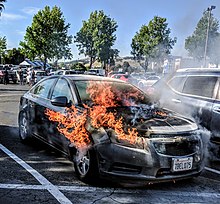
A product recall is a request from a manufacturer to return a product after the discovery of safety issues or product defects that might endanger the consumer or put the maker or seller at risk of legal action. Product recalls are one of a number of corrective actions that can be taken for products that are deemed to be unsafe.
The recall is an effort to limit ruination of the corporate image and limit liability for corporate negligence, which can cause significant legal costs. It can be difficult, if not impossible, to determine how costly can be releasing to the consumer a product that could endanger someone's life and the economic loss resulting from unwanted publicity. Recalls are costly. Costs include having to handle the recalled product, replacing it and possibly being held financially responsible for the consequences of the recalled product.
A country's consumer protection laws may include specific requirements in regard to product recalls. Such regulations may include how much of the cost the maker will have to bear, situations in which a recall is compulsory (usually because the risk is big enough), or penalties for failure to recall. The firm may also initiate a recall voluntarily, perhaps subject to the same regulations as if the recall were compulsory.